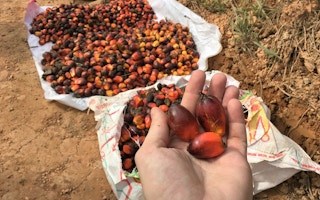Indonesia’s highest court on Thursday ordered President Joko Widodo’s administration to hand over detailed maps of land on which oil palm companies have been licensed to operate, adding momentum to a civil society push for greater transparency over the management of the country’s vast natural resources.
A year and a half ago in response to a freedom of information request filed by Forest Watch Indonesia (FWI), the country’s Central Information Commission ordered the Ministry of Land and Spatial Planning to release the documents, known as HGUs. The ministry’s appeals have proven unsuccessful.
A plantation firm’s HGU includes the precise boundaries, coordinates and area of its concession, as well as the company’s name.
The ministry had agreed that sharing the former presented no problem but argued that releasing the permit holder’s name violated its privacy.
The NGO only requested the HGUs for Kalimantan, the Indonesian portion of Borneo island.
Pressure groups like FWI and Greenpeace, which are fighting a battle of their own over data held by the Ministry of Environment and Forestry, want the HGUs in order better monitor an industry rife with illegality.
Oil palm companies routinely clear outside of their licensed areas, destroying forests and community lands with little oversight from local officials.
Companies have been loathe to share their maps, even though many promised to do in 2013 as part of their obligation as members of the Roundtable on Sustainable Palm Oil, the world’s largest association for ethical production of the commodity.
Some planters have argued that publication will expose them to extortion by local saboteurs or advantage their competitors.
Ultimately, growers in Indonesia and Malaysia, the source of most of the world’s palm oil, have claimed to want to release the maps but insisted that doing so would violate the law.
FWI chief Christian Purba said that once the ministry hands over the hard copies, the NGO will scan and upload the data to its website.
This story was published with permission from Mongabay.com










